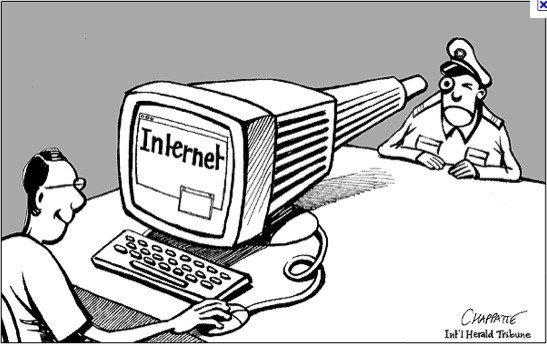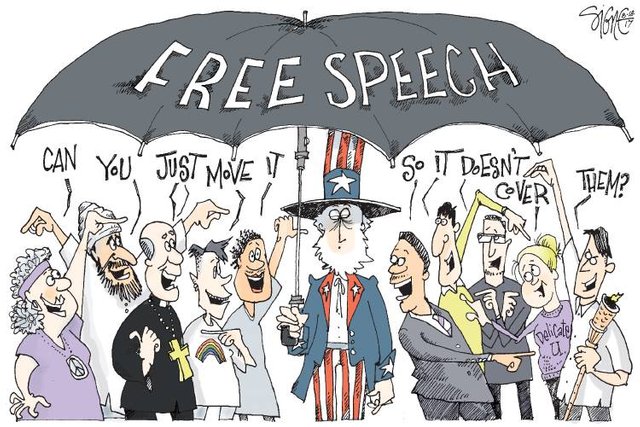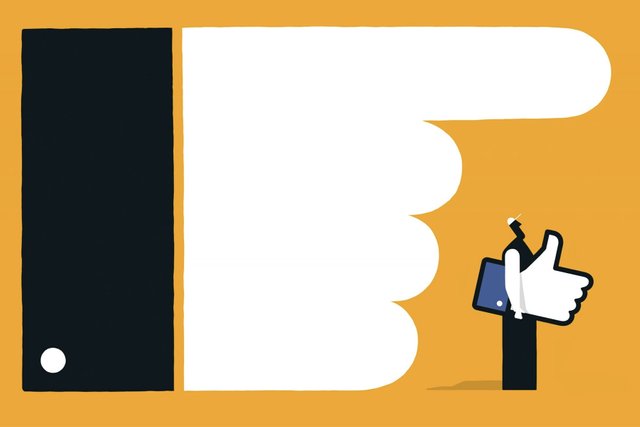Is It Finally Time To Regulate The Internet..? --The Third Problem--
In the preceding posts of this topic, I discussed my views on possible reasons why we should probably consider some general form of regulation on the internet.
In part two, I gave some examples of a seemingly disturbing evolution of social media incorporation into sadistic crimes perpetrated by youth.. (a side effect of being raised completely in an era of world wide connectivity?)..
I figured we should take a look at what, if anything is or can be done about it..

src
The truth is, the internet is regulated. It is regulated according to the individual countries legal culture. For example, Germany drafted a "multimedia" law that, among other things, censors pornography and anti-Semitic propaganda among internet users. Any act already prohibited in the country, such as denying the Holocaust or conducting fraudulent business, is also included in the law.
America, where the world wide web originated, has a more subtle, sophisticated approach towards internet regulation. All electronic communications in the country are regulated by the Federal Communications Commission (FCC). There is minimal content regulation, but that does not mean there is no regulation. Basically, the FCC defaults to the First Amendment to the Bill of Rights, the free-speech principle.
And herein lies the conundrum..

src
First obvious issue is that the internet is without borders. Sure ISPs operate on a country by country basis, but that brings up two more problems.. who's responsibility is it to uphold regulation..? Providing internet service to millions of users is a full time job in itself, adding regulation to the list of duties for ISPs is going to throttle the internet and is unreasonable.
Futhermore, Scott Rosenberg from Axios.com points out:
"The first major internet regulation in the U.S., the Communications Decency Act, passed as part of the Telecommunications Act of 1996. Its central provisions restricting indecent content online were quickly thrown out by the courts as overly broad. But one key rule that's still on the books, known as Section 230, protects online providers and platforms from legal responsibility for user-contributed content. As a result, a law originally aimed at penalizing providers of potentially objectionable content wound up protecting them." src
Which means holding service providers and domain owners responsible is out of the question, at least in the United States.
In recent years, the United Kingdom has taken another route. The Counter-terrorism and Border Security bill includes clauses that target the user. For example, now, in the UK it is crime to view terrorist-related material online three or more times, with a penalty of up to 15 years in jail.
Contrary to any perception from media reports of increasing laws though, most countries are trying to censor with a light hand. China, for example, has retrenched from an apparently hardened attitude to censorship. Censorship, for lawmakers, was never intended to be 100 percent effective. It was intended as a political statement.
Indeed 15 years in jail for the users seems harsh, so it may be more of a deterrent than anything. Which brings us full circle.. what, if anything, can or should be done? and Who is responsible?
These are questions that are obviously not easily answered, but should be seriously considered. The internet has grown rapidly, and on a scale that was hardly imaginable a few years back. There is no precedence for many grey cases of 'free speech vs conduct of Incitement' sprouting up online. But one thing seems frighteningly certain, unless some measures are put in place to restrict graphic exposure on social forums, disastrous consequences of desensitization especially among the youth are likely to become tragically more commonplace.
What are your thoughts? Should the internet remain free and open at all cost are there cases where regulation is called for? and if so, who is responsible to enforce or uphold said regulation? Are there ways to enact regulatory legislation without giving governments authoritative control to spy and censor to manipulate public opinion?? Start the discussion in the comments below!

